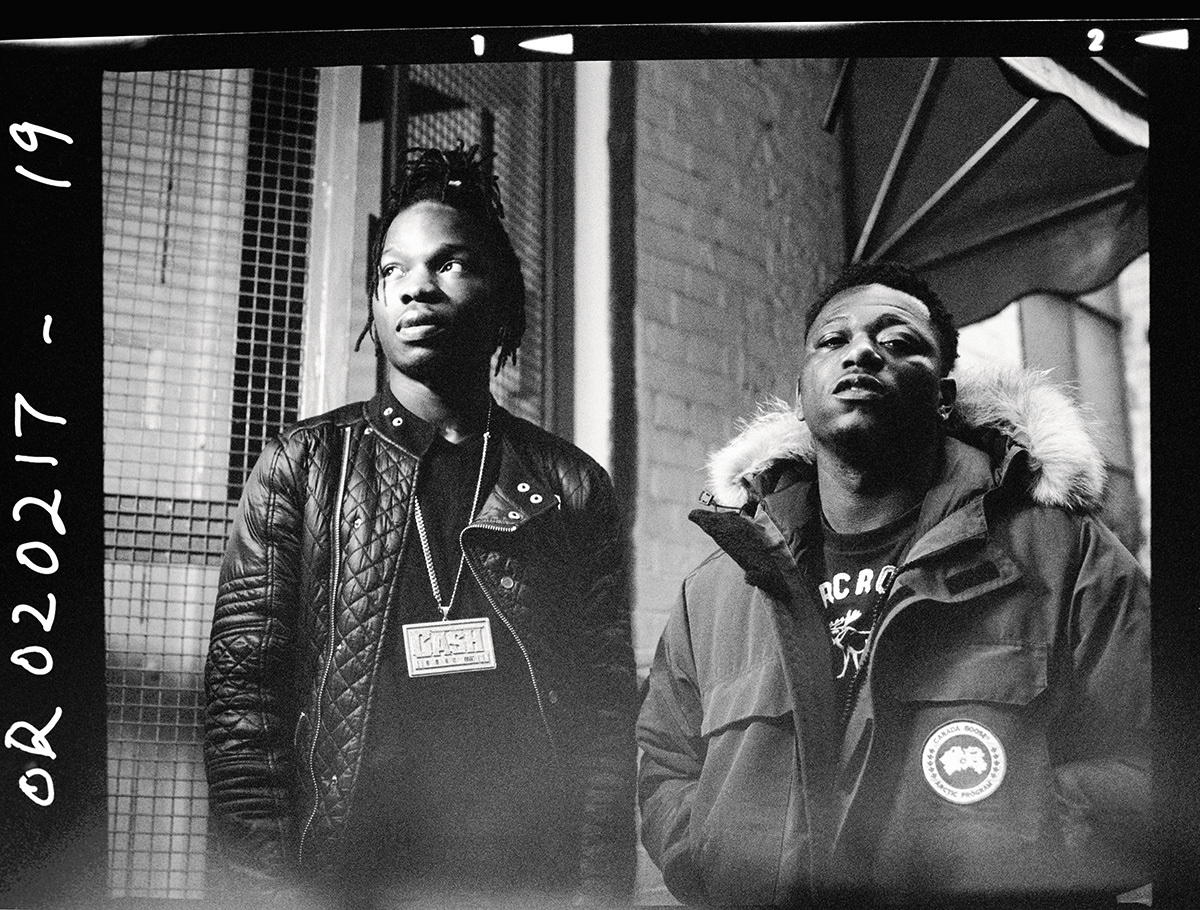London evolves. The city thrives on the unpredictable hybridizations of immigrant culture, styles shifting shape as fast as each generation grows up. This means that you can solidly bet that any time the mainstream is championing an aesthetic, the underground has moved on. And so, inevitably, as the media finally allows grime a seat at the top table, the streets have started bumping to a whole new sound.
Spend an hour or two listening to any of London’s booming new internet radio stations, the likes of Radar, Balamii, or Reprezent, and you’ll soon hear this new direction; a fusion of rap, bashment, and R&B that has been refreshed by a new ingredient: Afrobeats. If this new scene has anything in common with the early days of grime, it’s that currently no one knows what you call it. Call it UK Afrobeats, Afrowave, New Wave, or Afro Fusion — all of these have been tried, although none yet feel like they’re definitive. Whatever name you choose, there is a definite sound emerging; enough so that MOVES, a compilation curated by scene linchpin DJ Afro B has recently been announced — featuring around 20 artists. It looks like 2017 is set to be the year the scene (and we’ll call it UK Afrobeats for now) arrives.
Unlike other UK dance genres which have traditionally been defined by the tempo and arrangement of the drums, Afrobeats is largely defined by melody; no matter what speed the track, the vocals will be delivered in an autotuned West African scale that’s as sweet as it is mournful. It’s hard to describe but unmistakable once heard.
The genre has been bubbling away for a few years now, with the most visible early success being Fuse ODG’s assault on the charts in 2014 with his trio of sparkly pop tracks Antenna, Million Pound Girl, and Dangerous Love. These chart-friendly bangers introduced Fuse’s Ghanaian tones to radio, but his borderline EDM sound, glossy synths, and major chords produced by the Ghanaian producer KillBeatz, didn’t catch hold with London kids who were dealing with increasingly bleak inner city living. No one immediately followed in Fuse’s footsteps and he started to look like a fluke. Meanwhile the estates and suburbs of London were ringing to the slow motion menace of trap and drill, a murkier sound more in tune with the constrained economic times than Fuse’s optimistic sheen. African immigrant kids — emboldened by the success of Fuse, as well as the rising profile of Nigerian artists such as Wizkid, Tekno, and Davido, and the groundwork put in by other underground UK artists such as Mista Silva and Kwamz & Flava — started to spit bars in their own accents, finding a commonality between the mutated autotuned soul of Young Thug, Fetty Wap, and Future, the sorrowful threat of Jamaican star Mavado, and the hooky melodies popularized in Ghanaian and Nigerian pop.
In 2015 this growing scene had its first visible hit. The Newham-based artist J Hus recorded “Dem Boy Paigon,” a track that saw him crib lines from a wide variety of acts he loved — from TLC to JME — and deliver them over a sparse rap beat in an accent that reflected both his Gambian heritage and his life hustling on the roads of London. The track was a huge hit in the clubs and on the streets, drawing enough attention that Hus was rapidly signed to the Sony backed label Black Butter. As it turned out, he was just the first of many artists experimenting with this fusion of harder edged beats and honeyed melodies — suddenly there were new artists emerging from all across the capital.
DIY studios sprang up all round the outskirts of London, in places such as Forest Gate, Croydon, Lewisham, and Wimbledon that have so far resisted the spreading gentrification of London. Cheap technology turbo-charged the process. Studio speakers, microphones, and computers are cheap enough now that a serviceable studio can be put together for $1200. Music videos can be made for as little as $75. Spend $600 and you can have an epic. With the rise of YouTube channels such as Link Up TV, GRM Daily, and PressPlay, there is now a complete, self-contained eco-system. Artists can record a track on Tuesday, shoot the video on Wednesday, drop it on Sunday, and see a hundred thousand views come in by the following Tuesday. Acts such as Belly Squad and Kojo Funds now release videos that have plays in the millions, all with the barest of support from the traditional media and music industry.
Around them there’s a whole scene of artists all pushing their own variation on the sound — and in this way, again, the scene has parallels; in the early days of grime, it was a point of honor that no two MCs or producers would sound alike. UK Afrobeats has a similar mindset, even if the results are more disparate. On one end of the scene you have acts such as S.K., New Age Muzik, and Sona pursuing a smoother R&B sound, big on ballads mixed with syncopated African percussion. At the other end of the scale you have acts like Naira Marley, CXCV or Belly Squad who make harder road tracks best heard blasting from behind the tinted windows of a German whip. In between there are artists such as Afro B, who is teaming up with production power house Team Salut to work out how to bring the scene the pop edge it needs to emulate Fuse ODG’s earlier success. There are links between artists going back years — often with family ties thrown in. And as with most families, collaboration is as common as confrontation. Suffice to say competition is fierce, everyone is hungry, and a lot of music is being made quickly.
p.p1 {margin: 0.0px 0.0px 0.0px 0.0px; text-align: justify; font: 8.5px Helvetica}
Where the scene goes over the next few months is hard to guess — it’s already moved from Fuse ODG’s power pop to the bashment-ready crud of Kojo Funds in the space of a couple of years. With scene leaders such as Belly Squad still in their teens, there’s a lot of development yet to come. In many ways this current period, where the scene is not fully named let alone rigidly defined, and where anything remains possible, might be the most exciting time of all.
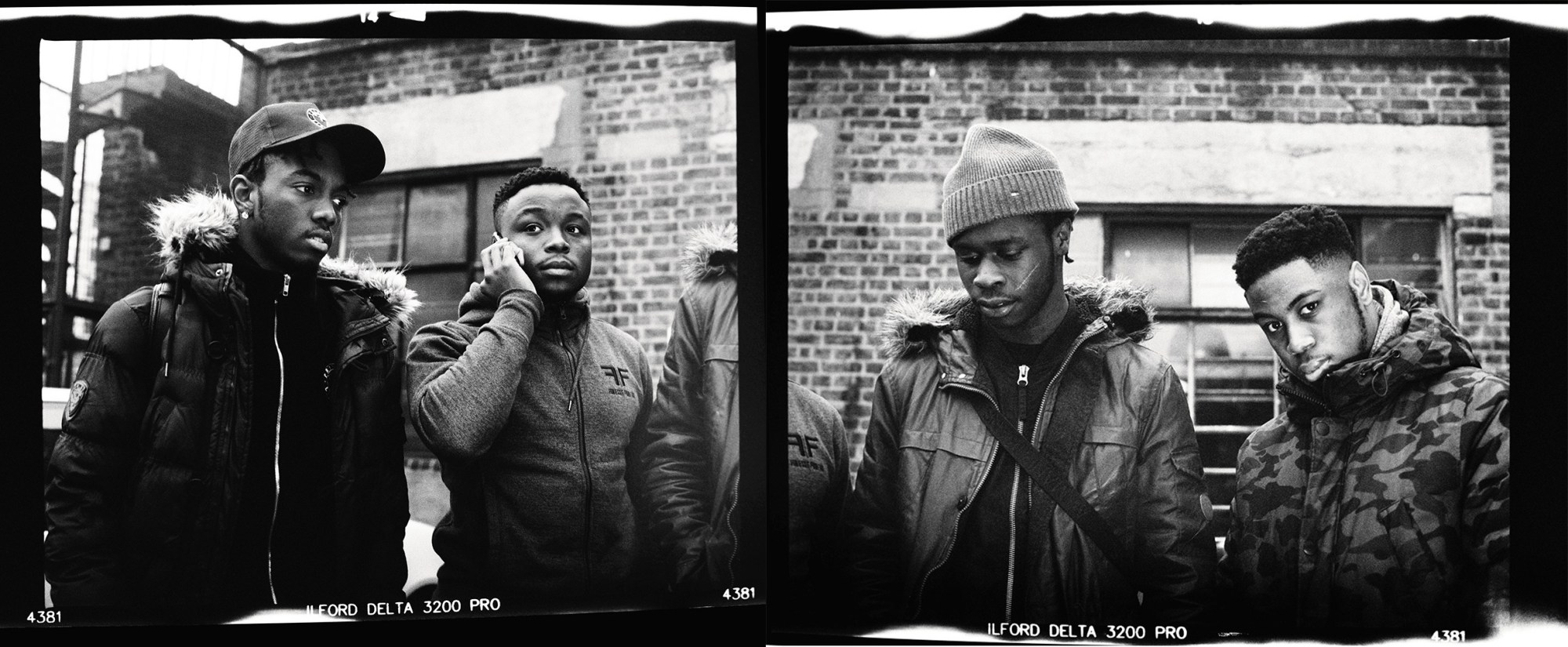
p.p1 {margin: 0.0px 0.0px 0.0px 0.0px; text-align: justify; font: 8.0px Helvetica} span.s1 {font: 13.0px Helvetica; font-kerning: none} span.s2 {font-kerning: none}
104
104 is a new production house based in Croydon that’s churning out hits like a teenage Motown. They’ve got a stand-out star in IQ, the 16-year-old who learnt his craft from his elder brother, the dancehall artist and occasional Major Lazer collaborator QQ. “We were both named by our dad, he goes by the name of GQ — Gentleman Quality,” he says. “I got IQ because I’m intelligent, and my brother got QQ because he’s just pure quality…” IQ has been working on a sound that teams hard lyrics with sweet, almost poppy melodies, finding his own lane between bashment and rap. Alongside IQ, 104 also features rising rappers Tee Da Supreme and Tayo GG, who put Afrobeats inflected vocals over hard drill beats. But the crew’s secret weapon is the meeting of minds between producer JB and engineer Tweak. With JB’s musicality and Tweak’s skill at recording crystal-clear vocals, they’re crafting beats that bang as hard as anything from a pro studio. Expect a lot more to come from 104 in 2017.

p.p1 {margin: 0.0px 0.0px 0.0px 0.0px; text-align: justify; font: 8.0px Helvetica} span.s1 {font: 13.0px Helvetica; font-kerning: none} span.s2 {font-kerning: none}
Belly Squad
Made up of three young MCs spearheading the UK afrobeats/rap scene, Belly Squad has been creating noise since it dropped a first video “Trustworthy” (shot for a bargain £60) back in 2014. A true family affair, Belly Squad features school friends Yung Max and Ty alongside Ty’s cousin Ross. Max’s elder brother Izaak mans the decks when they perform live, and elder brother again Elliot manages the crew. The trio have consciously fused the influences of their respective backgrounds; Ty and Ross’s parents come from Sierra Leone, and Yung Max’s from Dominique, and as such they’ve blended together Afrobeats and dancehall with grime and trap, flipping between styles with a skill that’s bought them a huge London fanbase. This can be best heard on their breakthrough tune “Banana,” a near perfect piece of urban pop songwriting that combines a sweet Afrobeats melody with gritty UK flow, and saw the band picking up plaudits from London to New York in its original form, before coming again as a remix that gathered together the cream of the UK scene, with Abra Cadabra, Young T & Bugsey, Timbo, and the late Showkey all dropping massive verses.
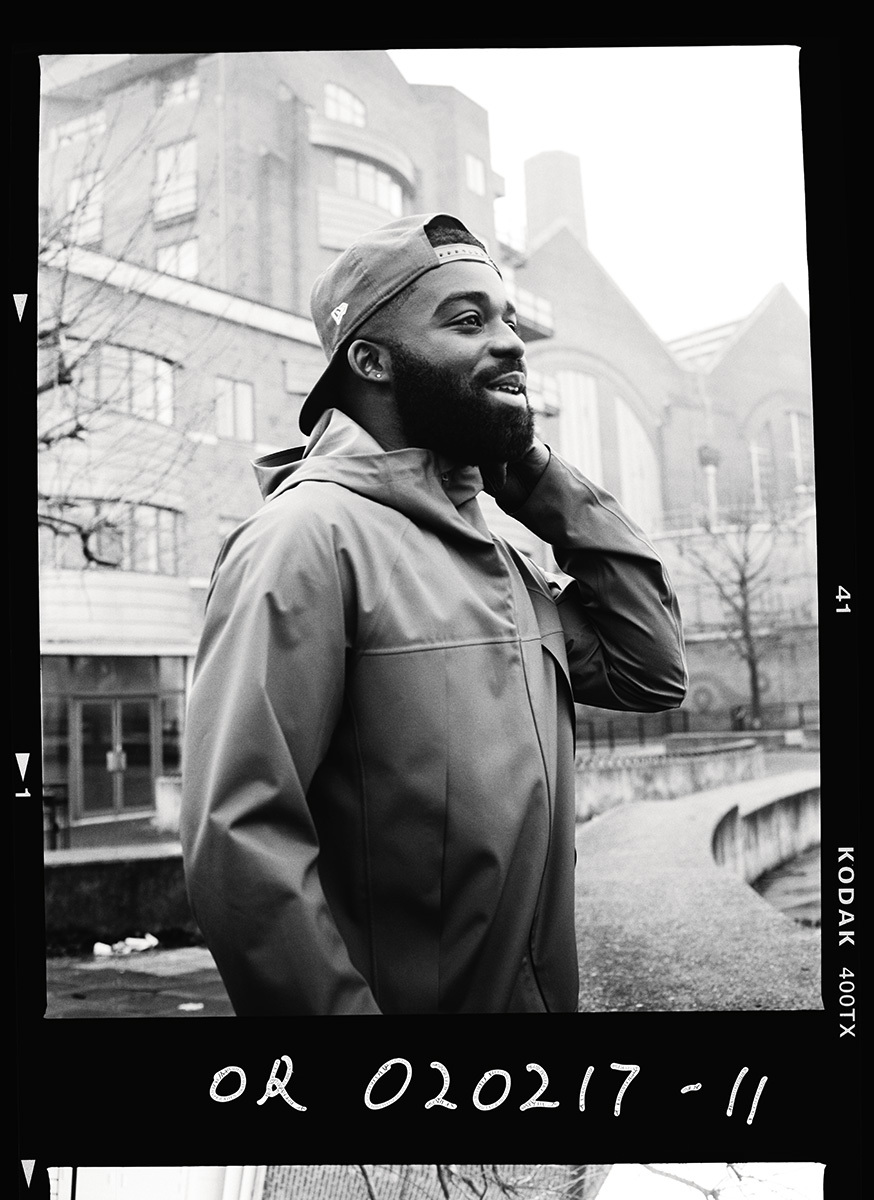
Afro B
A key figure in the scene, the DJ-turned-songwriter-turned-talent-scout is something of a polymath. He made his name on Reprezent Radio, swiftly becoming essential listening for anyone looking for the freshest of the UK sound. Not content playing other people’s records, Afro B started releasing his own tracks, and proved to have such a knack for writing hooks that he became the go-to for anyone looking to lace their beat with an Afrobeats chorus. This year will see him consolidate his position with AfroWave, a mixtape of his own tracks, and Moves, the definitive scene overview he has curated.
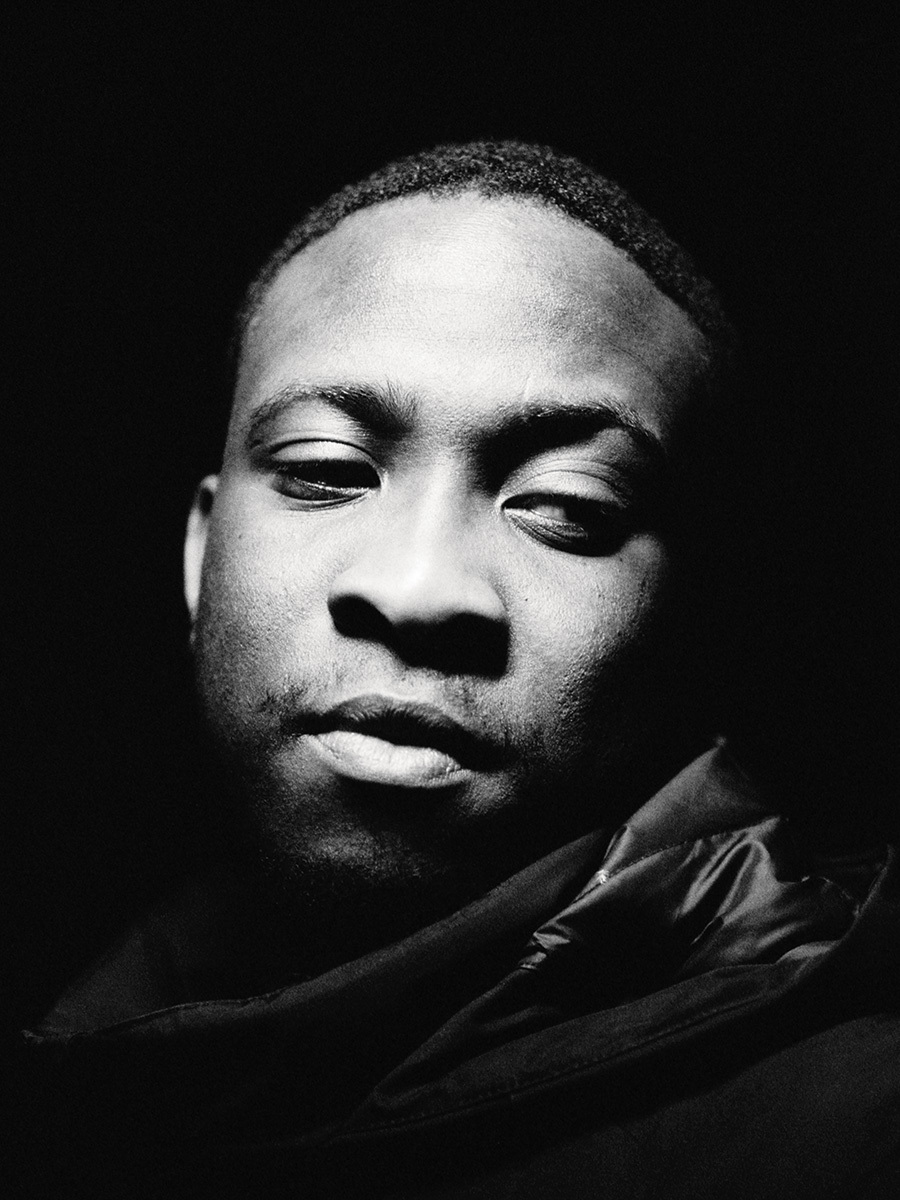
p.p1 {margin: 0.0px 0.0px 0.0px 0.0px; text-align: justify; font: 8.0px Helvetica} span.s1 {font: 13.0px Helvetica; font-kerning: none} span.s2 {font-kerning: none}
Kojo Funds
Kojo is a UK-Ghanaian artist who is currently vying to be king of the scene. He first blew up a couple of years back with the track “Want From Me.” A summery hybrid of Afropop and bashment, the song was a moderate hit for Funds — but then a massive hit for J Hus, who jumped on the beat and made the track his own. Around the same time Hus also recorded a diss track aimed at Funds, with the beef seemingly having origins outside music. Funds took no prisoners on his response, dropping the immense cut “Arriba,” a crazily catchy tune that smuggled brutal lyrics in through singalong melodies. It’s quite likely that 2017 will see Kojo produce the mixtape of the year.
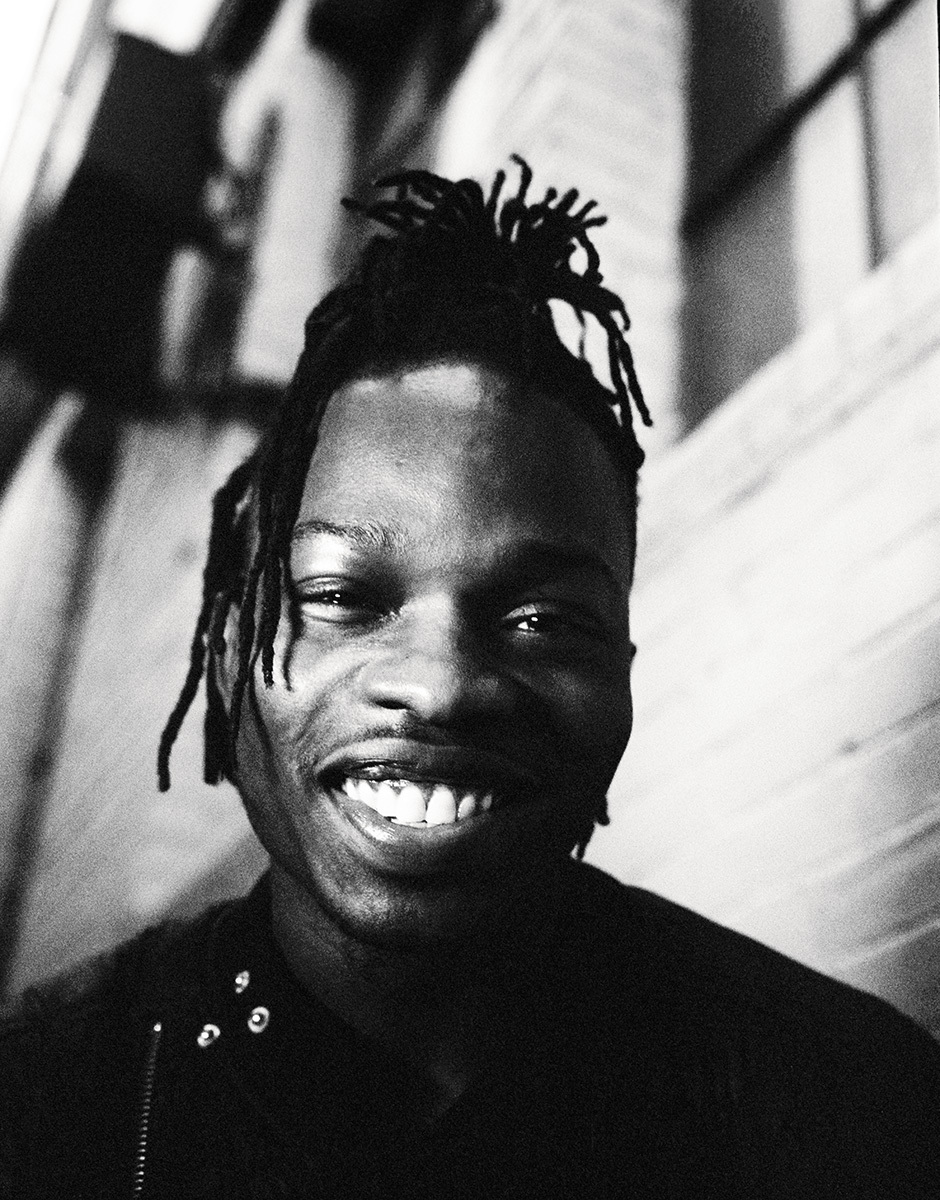
Naira Marley
A Peckham badman with a cheeky grin, Naira Marley was one of the first to mix Afrobeats vocals with harder UK beats. Back in 2014 Naira recorded “Marry Juana,” a weed smoking anthem that saw him spit his heavily accented bars over a glistening bashment rhythm. It was a huge hit on London streets. “People see me around Peckham and go crazy,” he laughs, “like, they can see me five times in one day and still go crazy each time.” The years since have seen Naira steadily building up his following with a series of tunes that deliver dark tales of life on road in disconcertingly hummable melodies. Recent years have seen Naira teetering between recording tracks and actually living the hood life he sings about — but his swaggering sense of charisma and his unique vocal style all suggest that he’s got the star quality to become a household name.
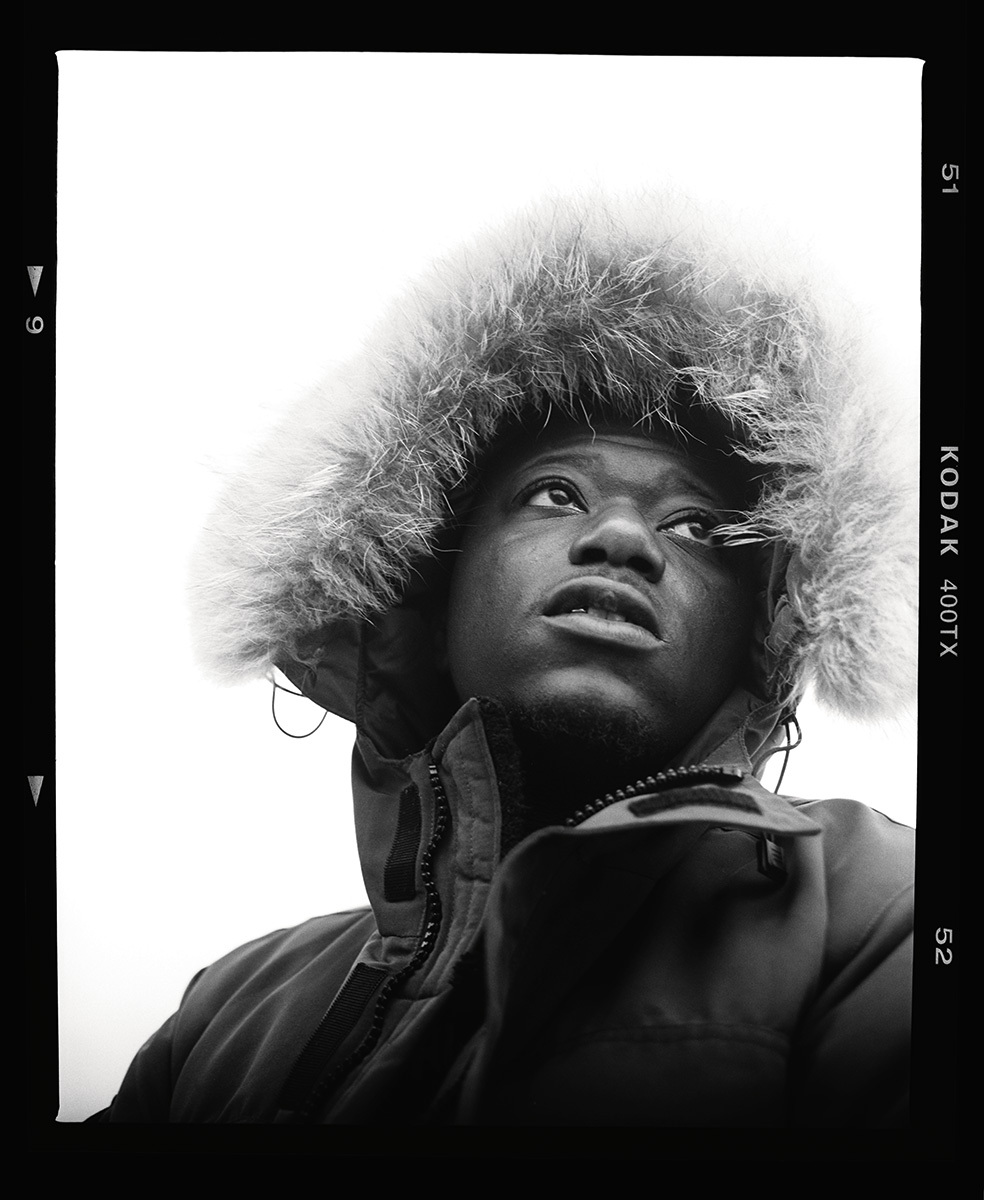
p.p1 {margin: 0.0px 0.0px 0.0px 0.0px; text-align: justify; font: 8.0px Helvetica} span.s1 {font: 13.0px Helvetica; font-kerning: none} span.s2 {font-kerning: none}
Omo Frenchie
Always musical, Omo was inevitably going to switch from singing in the school choir to spitting bars, with his tracks ranging from the straight up Afrobeats sound of “Makelele” to the propulsive house influenced banger “Cele.” Unusually for a young rapper on the up, Frenchie is driven by way more than the urge to make money; “I’m for the people. My vision is beyond big houses and fast cars. Money is just paper. What do you do after that? Do you just keep splashing more and more? I come from Africa, Africa was once like Europe. How dare I leave there and become wealthy, and that’s it? I wanna be a good change via music…”
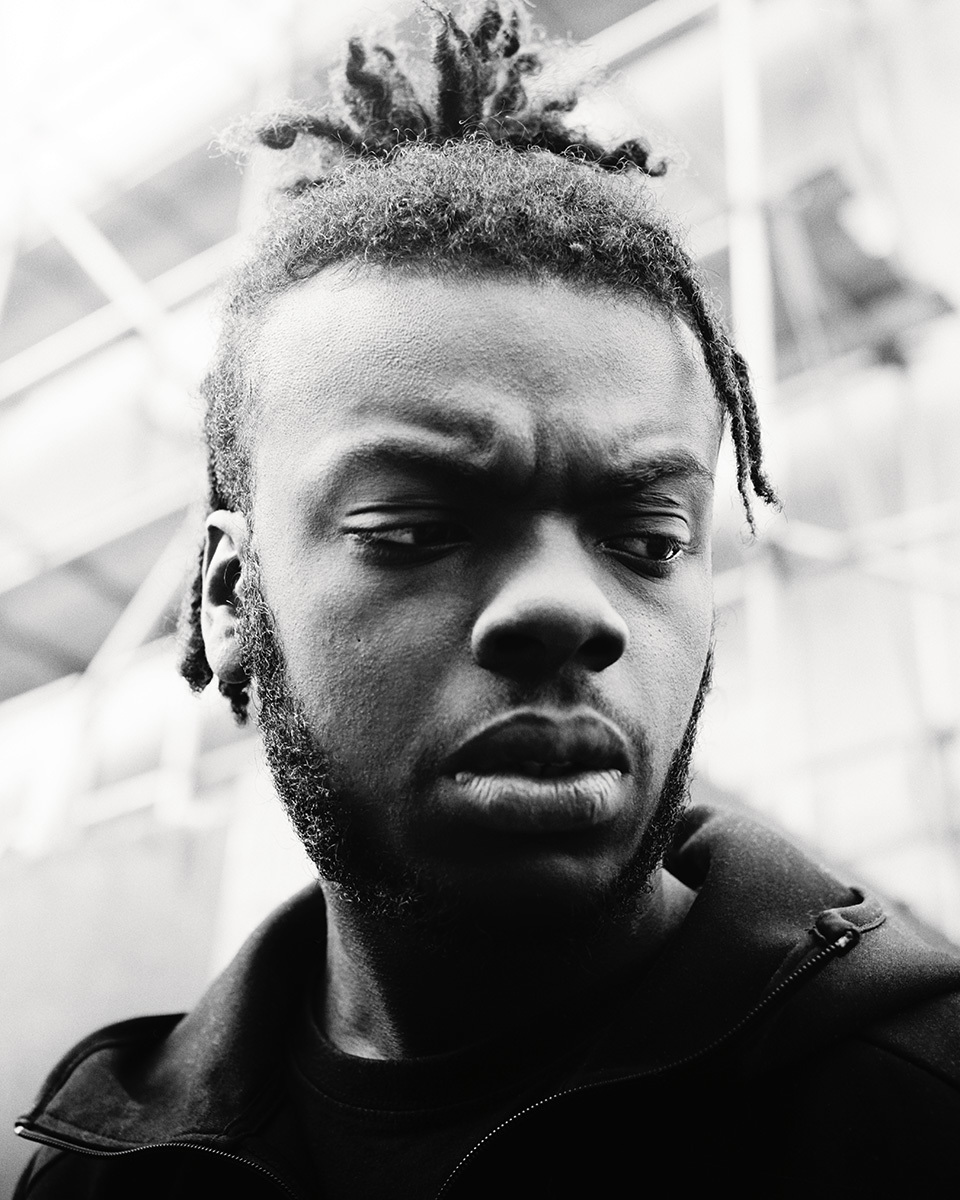
p.p1 {margin: 0.0px 0.0px 0.0px 0.0px; text-align: justify; font: 8.0px Helvetica} span.s1 {font: 13.0px Helvetica; font-kerning: none} span.s2 {font-kerning: none}
Jaij Hollands
Jaij is the lead artist of the IRAY MVMT family, a collection of Ghanaian producers, singers, dancers, and rappers based in Forest Gate. IRAY has a sound that’s instantly recognizable, a hard blend of the percussive, almost 4/4 Ghanaian dance styles Azonto and Alkayida with grimey UK bass lines and harsh rave-ready synth stabs. Over these rhythms (many of which Jaij produces himself), drop lyrics in the deepest baritone, Jaji’s voice a bass-heavy growl so low that he’s barely audible when he speaks, and impossible to ignore when he spits. The studio he operates from is something of an epicenter in the scene — artists including Afro B, Vianni, Omo Frenchie, and Kwamz and Flava have all passed through to drop vocals alongside Jaij in loosely run recording sessions that can run for days.
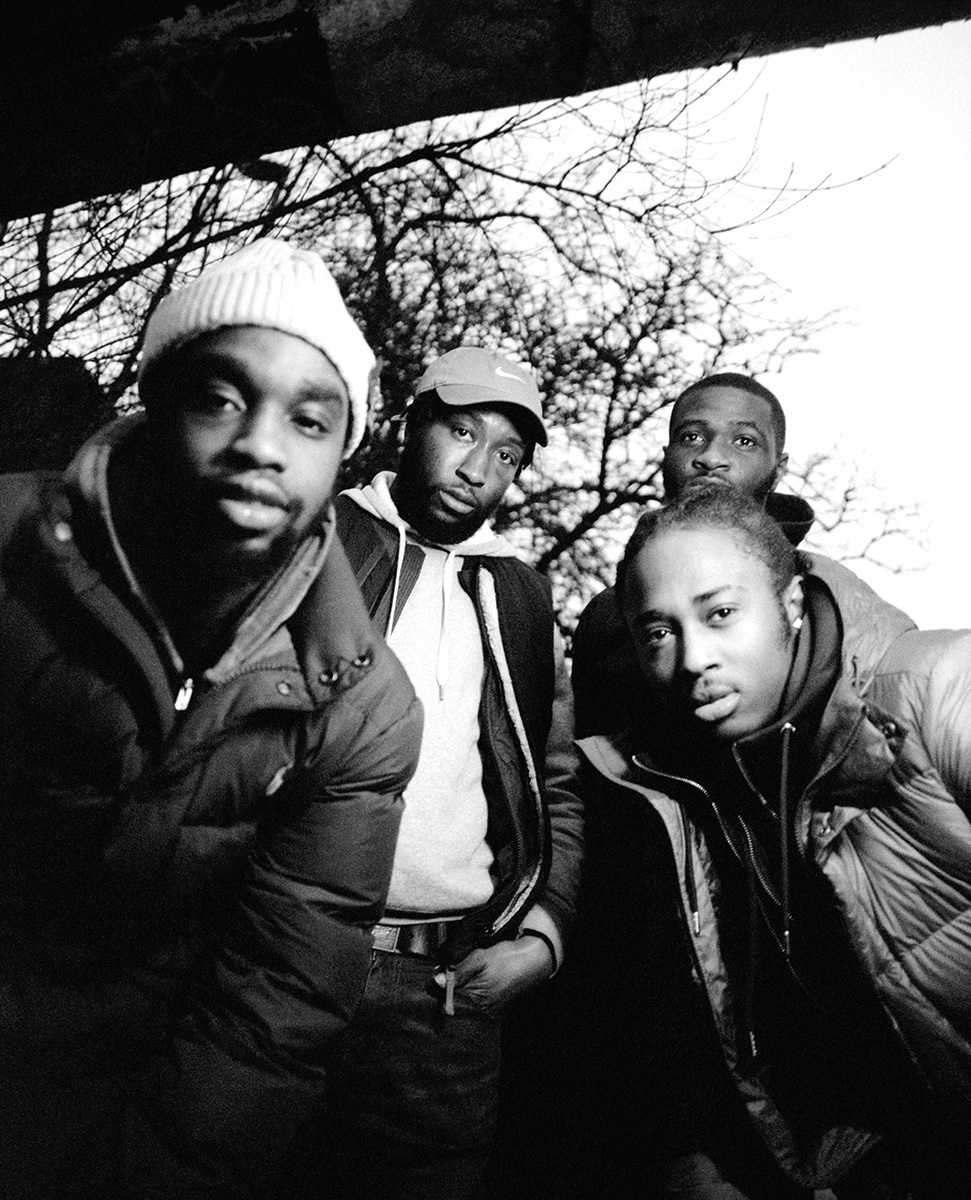
p.p1 {margin: 0.0px 0.0px 0.0px 0.0px; text-align: justify; font: 8.0px Helvetica} span.s1 {font: 13.0px Helvetica; font-kerning: none} span.s2 {font-kerning: none}
NSG
Hackney crew NSG have taken the energy of grime and pushed it into Afrobeats. With a shifting membership that currently includes rappers and producers Papii Abz, Kruddz, OGD, Mojo, Mxjib, and Dope, NSG (which stands for Non-Stop Grinding or Nigerian Slash Ghanaian depending on whom you ask) are one of the best live acts in the scene, taking over the stage with crazy, amped up performances, grabbing the mic from one another, pulling dance moves and flying through their hits. They’ve benefitted from linking up with star producer Jae 5 — members OGD and Kruddz are his younger brothers — and Jae 5’s skill on a mixdown have given their tracks an extra layer of professionalism. As with most of the Afrobeats scene, they’re cocky about the future — “We’ve got Afrobeat roots, bashment roots, hip hop roots,” says Mojo. “We know where it all comes from,” adds Papii, “but no one does it like us. We’re a family ting.”
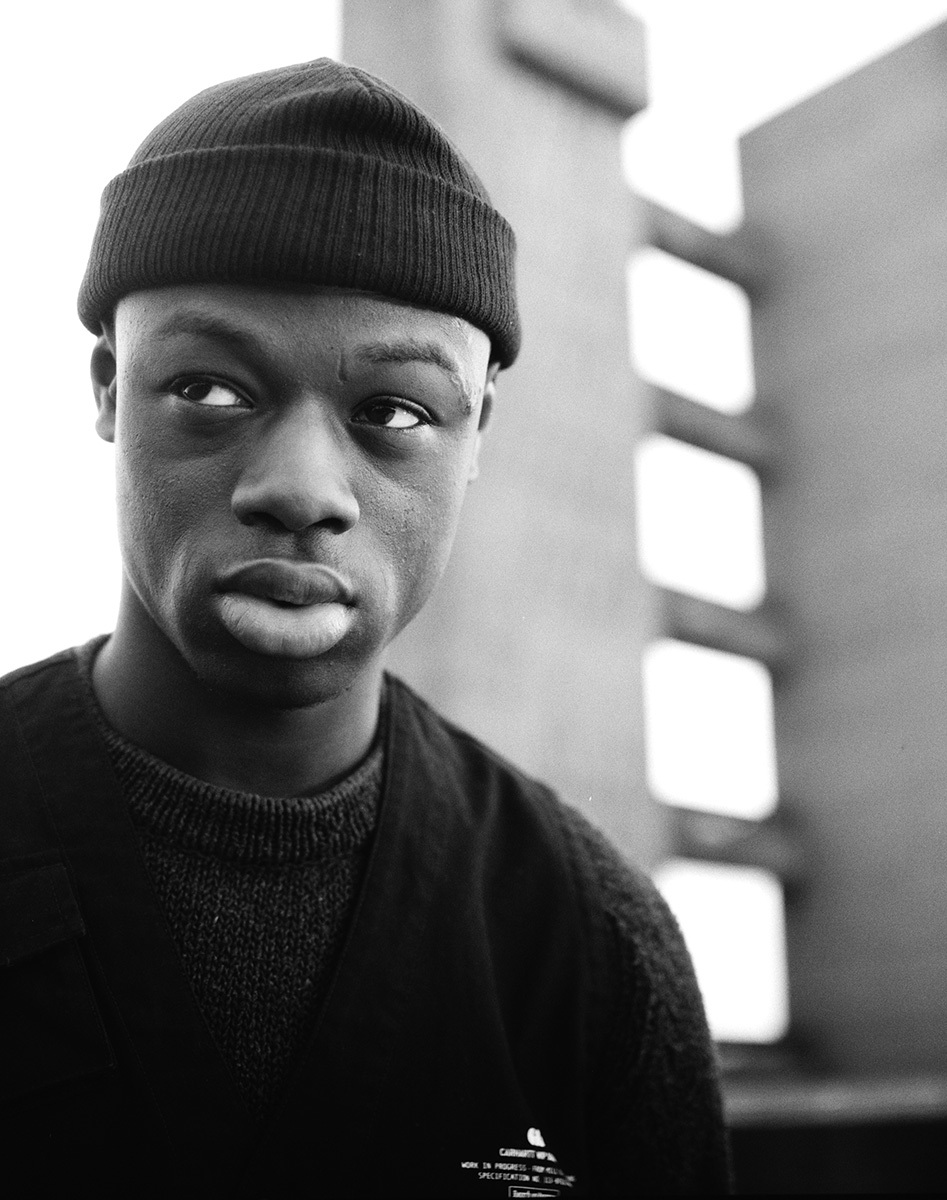
p.p1 {margin: 0.0px 0.0px 0.0px 0.0px; text-align: justify; font: 8.0px Helvetica} span.s1 {font: 13.0px Helvetica; font-kerning: none}
J Hus
J Hus remains the biggest single artist to emerge from the UK Afrobeats scene — and this despite an early career that has been hit with setbacks. He picked up tabloid notoriety when he was pictured throwing up gang signs from a hospital bed (after he’d been stabbed). Hus then spent months in prison while his first two official singles “Lean & Bop” and “Friendly” were blowing up on the radio. Now with prison behind him (he’s cagey about what he was inside for, noting that it was a charge “from something I was doing before music — I’m keeping my head down now”), he’s preparing to finally drop his much anticipated debut album. Unlike most MCs, he works almost exclusively with a single producer, Jae 5, the two of them crafting a sound together that nods to classic R&B beats with Hus’s delivery switching between hard UK rap vocals, and sung West African melodies. Hus still hasn’t come up with a name for his style. “When I know I’ll tell you,” he says, “but I know it’s my sound, and no one else out here can do it like me…”
Credits
Text Ian McQuaid
Photography Olivia Rose
Photography assistance Cleo Carmen Harwood
